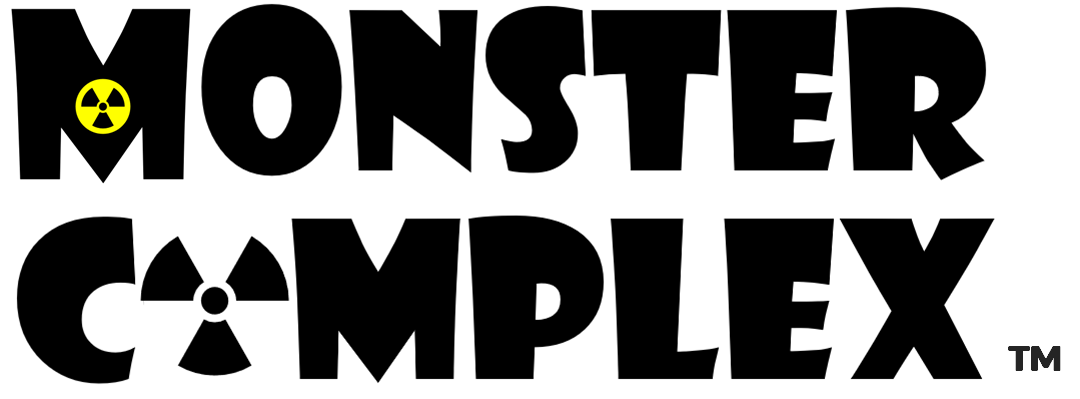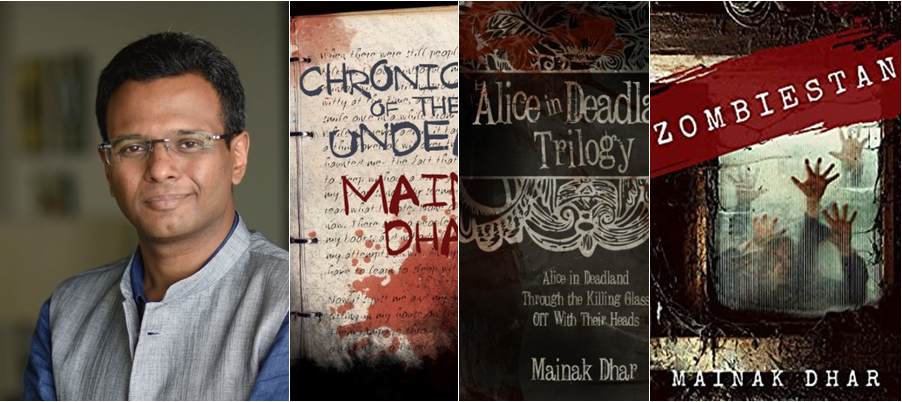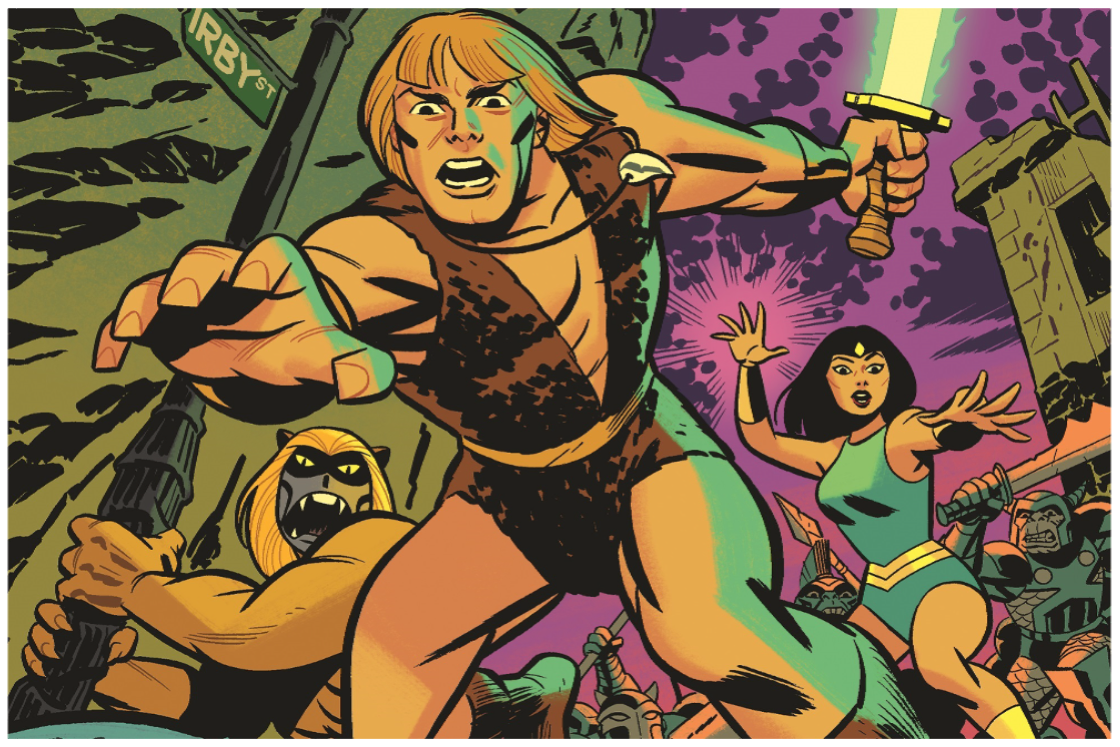Zombie Q&A—Mainak Dhar (Zombiestan)
“Inherent goodness can unite us all when faced with evil.”
The Zombiestan and Alice in Deadland author shares what inspired him to write about zombies, the metaphor behind Zombiestan, and what he won’t do for his readers.
A cubicle-dweller by day and writer by night, with more than a dozen books to his credit, Mainak Dhar is a bestselling author in his native India with titles published by major houses like Penguin and Random House, and one of his novels being made into a major motion picture.
Monster Complex uses Amazon affiliate links.
Mainak Dhar on His “Come to Romero” Moment When He Was Inspired to Write About Zombies
I’ve always enjoyed post-apocalyptic and dystopian fiction because it’s fascinating to see how people behave when all the rules and norms we take for granted in society break down. So my staple diet in books has included classics like Swan Song, Lucifer’s Hammer, I am Legend, Cell, and so on. I had always wanted to try my hand at post-apocalyptic fiction and one day, as I was doodling ideas for what I could work on next, the word “Zombiestan” popped into my head. My first reaction was—that could be so cool. One thing led to another, and I started bringing the undead to life, one book at a time.
SOURCE: The Guilded Earlobe
Mainak Dhar on The Theme of Zombiestan
The outbreak is in a way a metaphor for religious fanaticism and how those blinded by it seek to spread their message, even if it means destroying innocent lives. The key protagonists were chosen deliberately—a Christian Navy SEAL, a Hindu boy and girl, and a Muslim writer—all banding together to protect a child. That was done to show that irrespective of our religion or background, inherent goodness can unite us all when faced with evil.
SOURCE: The Hindu
Mainak Dhar on the Alice in Deadland Series
The series is about a fifteen-year-old girl called Alice who was born just after The Rising, a series of events that destroyed civilization as we know it, and left the human survivors at the mercy of seemingly undead “Biters” and the mercenary forces of Zeus serving their shadowy masters. Alice grew up believing the 'accepted' story that the Biters were inhuman, irrational monsters, and that humans were engaged in a “war on terror” against them.
As she follows a rabbit-eared Biter down a hole and learns more about them and what truly led to The Rising, she discovers a massive conspiracy at the heart of it, which challenges her notions of who the “good guys” really are, and leads her to discover her destiny through a series of exciting adventures.
At one level, it is a tale of adventure, but at another level, I hope it gives some food for thought on the nature of freedom and liberty, especially in the times we live in today.
I think people are nowadays acutely aware of how we are screwing up our world—with pollution, overpopulation, economic mismanagement and now, of course, the COVID-19 Pandemic we’re all living through. As a result, I think people are concerned with what may happen if society as we take for granted breaks down—hence the fascination with dystopian fiction. Zombies are a manifestation of that, a seemingly unbeatable foe determined to end human civilization as we know it.
I also use zombies as a metaphor for how we ourselves are the biggest threat to our world. In Alice in Deadland and Zombeistan, the zombies (or Biters, as I call them) are the direct result of what people do in their quest for power.
SOURCE: Many Books
Mainak Dhar on His Target Readers for Zombiestan
When I was writing it, I was focused on the story I wanted to tell: a tale of adventure set in a post-apocalyptic world, but hopefully with some messages relevant to the real world we live in. With the main characters being teenagers, I certainly had an idea that this would appeal to younger readers. I began talking to my Indian publishers, Duckbill, and they confirmed that this would appeal greatly to young adults. We teamed up to bring Zombiestan to life as one of the first titles in their list.
SOURCE: Helter Skelter
Mainak Dhar on What Makes Zombiestan Unique
Zombiestan was my first zombie novel, and my attempt was to inject something new and unique into a genre I enjoy tremendously as a reader. I believe a writer succeeds when he embraces what makes him unique v/s being another of a herd, so instead of yet another zombie apocalypse story set in the U.S., I set Zombiestan in the Indian subcontinent, where I am originally from.
The connection to the War on Terror (the outbreak starts among Taliban exposed to bio-weapons) gives it a universal resonance, but setting it in India give the story a couple of unique areas to play with. Simple things like the higher population density and what that would mean for the speed with which the outbreak spread, the fact that personal gun ownership is almost non-existent in India, and what that would mean for those survivors trying to fight back.
SOURCE: Zombie Blood Fights
Mainak Dhar on Reader Reactions
My first entry into dystopian horror was Zombiestan, and it was born out of my desire to try my hand at fantasy, a genre I love, mixed with contemporary affairs, again something I love following. Once I was in, I was hooked, and that has led me to the Alice in Deadland series and Chronicler of the Undead. No parent has complained yet, in part because I am personally not a fan of gore and excess violence, and so while my books have a lot of action, (but) nothing that I wouldn’t trust any teenager with.
One incident that does come to mind as hilarious is when a blogger in Delhi, inspired by Zombiestan, went to a blogger’s meet dressed as a zombie. He has since then picked up the nickname zombie and says the reputation (with the face blood and gore on his face!) and name is preventing him from attracting girls. I told him that I can do many things for my loyal readers, but fixing their love lives is beyond my capability!



















Interviews with the several authors from the “Weird Tales Presents” project. The legendary magazine is adding original novels, anthologies, and compilations—with horror, sci-fi, and fantasy.